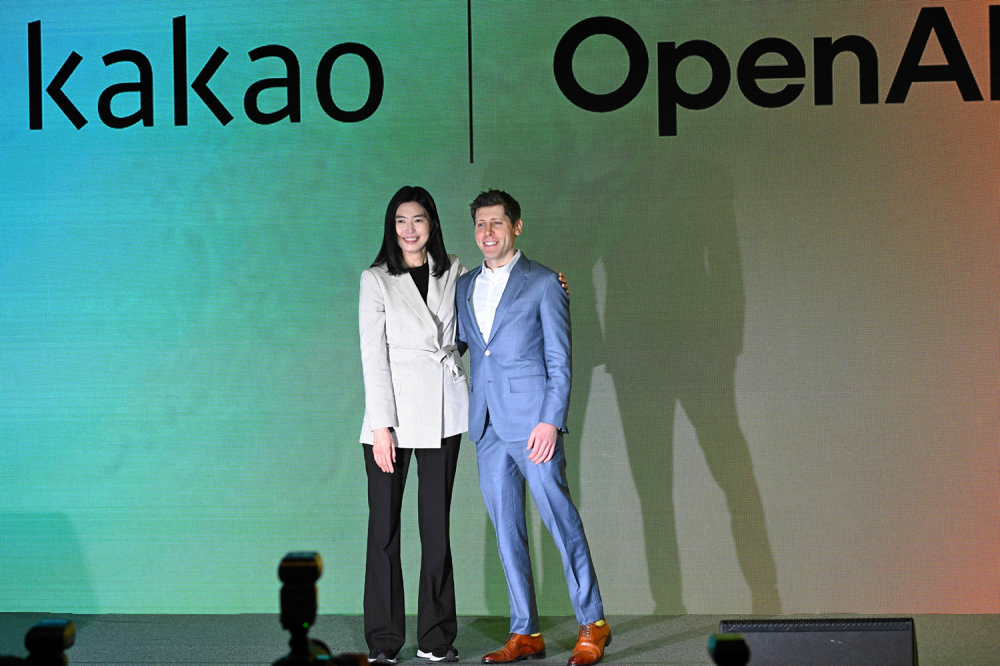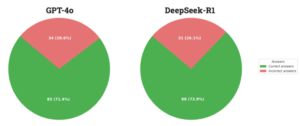DeepSeek’s Chinese AI Accelerates South Korea’s Involvement in the AI Race

The Rise of DeepSeek and Its Impact on South Korea
In late January 2023, a Chinese start-up known as DeepSeek made headlines with its release of DeepSeek-R1, an open-source generative AI model that appeared to challenge the most advanced models from the United States. What was particularly surprising was that it accomplished this using significantly less computing power than previously thought necessary. This breakthrough sent shockwaves through global markets and prompted a swift response from governments around the world, including South Korea.
South Korea’s Response to AI Developments
On February 17, the South Korean government took precautionary measures by banning new downloads of the DeepSeek chatbot, citing concerns over data security. Earlier that month, the National Intelligence Service of South Korea issued warnings about potential risks related to data privacy and misleading answers about sensitive topics like the historical territory of Goguryeo and the origins of kimchi, a matter of national pride and cultural significance for Koreans.
As a result of these concerns, South Korean users began bombarding the DeepSeek application with provocative questions related to these historical disputes. The government’s quick reaction stemmed from a combination of geopolitical anxieties and a recognition of South Korea’s relatively slow advancement in AI technology compared to its rivals.
Geopolitical and Economic Implications
DeepSeek’s introduction has become a wake-up call for South Korea, highlighting both its lag in AI competitiveness and the urgent need for strategic developments in the field. Although South Korea has made efforts to create its own AI models, challenges such as limited funding and a shortage of skilled professionals have hampered progress.
Nonetheless, the situation also presents new opportunities. DeepSeek’s success demonstrates that sophisticated AI technology can be developed without massive financial investment in specialized hardware. This realization is prompting South Korea’s government and tech sector to collaborate more closely, seeking partnerships with American firms while striving to enhance their in-house AI capabilities.
Building Homegrown AI Technologies
Despite being one of the most connected nations globally, South Korea has yet to fully realize its potential in AI. Factors such as insufficient investment, cuts to research funding, and uncompetitive salaries for engineers contribute to this situation. Reports highlight that while South Korea produces significant quantities of AI talent, it still faces challenges in translating that talent into innovation and development.
In response to the emerging challenges, notable figures in the tech industry are actively seeking alliances. Shortly after DeepSeek’s launch, Sam Altman, CEO of OpenAI, visited Seoul. He met with leaders from major South Korean companies, including Samsung and Kakao, initiating discussions around potential AI partnerships aimed at countering China’s rapid advancements.
Investments in Domestic AI Development
Recent dialogues align with South Korea’s vision to bolster its AI sector. For instance, Kakao and OpenAI plan to co-develop an AI agent, which will enhance Kakao’s messaging app, Kanana, by integrating capabilities from OpenAI technologies. This integration is seen as an effort to elevate Kakao’s AI offerings and allow it to compete against leading global models.
While international partnerships are crucial, experts also emphasize the need for South Korea to focus on creating its own foundation by developing unique AI models that encapsulate the country’s cultural values and social norms. Having a domestic model would enable South Korea to not only safeguard its technological autonomy but also enhance its geopolitical standing in the face of global competition.
The Road Ahead: Strategies for AI Sovereignty
Companies like Naver are already venturing into the realm of homegrown AI, with their model, HyperCLOVA X, being developed to reflect Korean culture and language. Despite facing computational limitations, Naver aims to make strides toward improving its AI functionalities.
Start-ups are also eager to take advantage of the opportunities presented by DeepSeek. For example, Upstage, a tech start-up founded by former Naver engineers, has developed several innovative AI models and encourages other companies to learn from, rather than just replicate, existing technologies.
Recent developments signal a tightening collaboration between the government and tech industries. Initiatives aimed at securing funding for AI projects and promoting a culture of innovation are underway. The passage of the AI Basic Act in late 2024 is anticipated to lay the groundwork for more comprehensive policies aimed at advancing South Korea’s AI landscape.
Conclusion: Embracing AI as a Path to Sovereignty
As South Korea aims to bolster its presence in the global AI arena, the country is not just pursuing technological advancements but is also aspiring to safeguard its cultural identity through native AI models. With ongoing nurturing of local talent and investments in infrastructure, South Korea appears poised to rise as a significant player in AI technology while navigating complex geopolitical waters.




